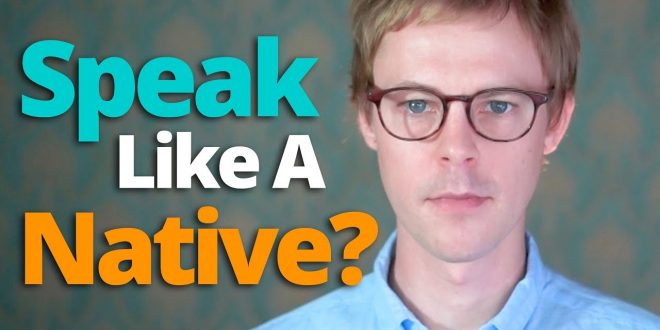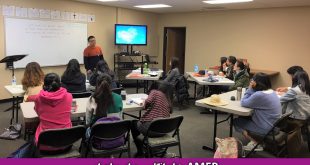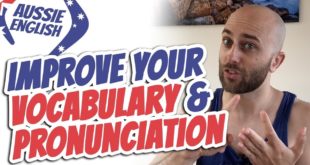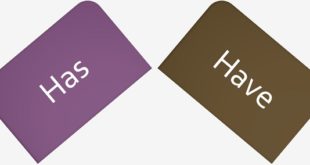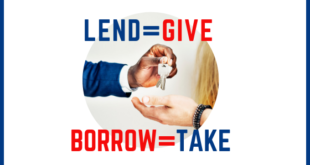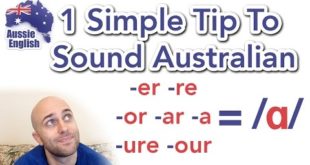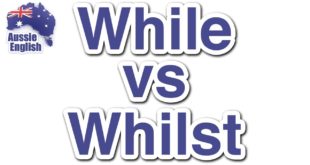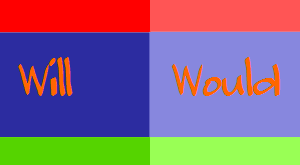11 Words To Mispronounce To Sound Like A Native
So often spoken English is different from how it’s written, and the reason this occurs is because we’re trying to convey ideas by speaking, obviously, as quickly as possible.
And a lot of the time correctly pronouncing these words doesn’t lend itself to speaking quickly.
So, a lot of the time sounds change, letters are removed, or syllables are removed from words.
And I do this all the time.
Native speakers do this all the time in English.
And I’m sure it happens in your native language as well.
So, today we’re going to go through a list of words that I would say, that are reduced down, that I think you should say as well to sound like a native.
Let’s go.
1. Clothes = “close” – / kləʊs /
All right. No. 1. “Clothes”. “Clothes”.
This is even hard for me to say, especially, when speaking quickly.
“I’m wearing a lot of clothes”.
So, often this one will actually get reduced down to just “clo-es”.
No “TH”. “TH” is turfed.
It’s thrown out. It’s removed. It’s ditched bye-bye “TH”. Close.
And it sounds like, “Opening the door and then closing it”. Close.
2. Asked = “ast” – / ɑːst /
No. 2. “Asked”. “Asked”.
This one, there’s quite a few different consonants in there. “S-K-T”.
It’s very difficult to say quickly.
So, we often get rid of the “K”. “Ast”.
“I as-ed him. I as-ed him a few times. What do they say. I don’t know but I as-ed him.”
“I as-ed”. “As-ed”.
3. Exactly – “ig-zak-ly” – / ɪgˈzækli /
No. 3. “Exactly”. “Exactly”.
This one gets changed as well where the “T” gets removed this time.
It gets ditched, thrown out. It’s too hard to say “Exactly”.
So, we just get rid of the “T”, and we say “exac-ly”, “exac-ly”.
“Is this right? Yeah that’s exac-ly right. That is exac-ly right.”
4. Properly – “prop-ly” – / ˈprɒpli /
No. 4. “Properly”. “Properly”.
This one, again, too many syllables.
“Prop-ly”, “Prop-ly”.
“Do we speak properly when we’re speaking quickly.
No we speak prop-ly”. “Prop-ly”.
5. Probably – “probly” – / ˈprɒbli /
That same thing happens here in number five, “Probably”.
This one, again, too long.
We get rid of one of those syllables, and we say “Pro-bly”. It’s pro-bly not correct to say pro-bly.” “Pro-bly”.
6. Library – “li-be-ry” – / ˈlaɪbəri / “li-bry” – / ˈlaɪbri /
No. 6. “Library”. “Library”.
It’s very weird to say ”library”.
This one can be either.
You can say “Li-be-ry” or you could just say “li-bry”.
I’d probably just say “li-bry”.
“I’m going to the li-bry”.
“I’ve asked Dave and he said he’s going to the li-bry. Is that true? Exac-ly.“
7. February – “Fe-bu-ry” – / ˈfɛbʊri /
No. 7. “February”. “February”.
This one sort of like library.
Those two “R’s” in there a bit weird.
So, this one is going to be said as “Feb-ury” “Fe-bu-ry”.
“I’m going to the li-bry in Feb-ury. Pro-bly. I’m not sure, but yeah pro-bly.”
8. Laboratory – “Lab-ro-to-ry” – / ləˈbrətəri /
No. 8 “Laboratory”.
Again, too long. Cut that stuff down.
“Lab-ratory” or even just a lab. But in this case “lab-ratory”.
“I’m working in the lab-ratory.”
9. Cupboard – “Cu-board” – / ˈkʌbəd /
No. 9 “Cupboard”.
No one, no one anywhere would ever say “cupboard”, “cupboard”.
There’s two consonants in there, the “P” and the “B”, and we just say the “B”.
“Cu-board”, “Cu-board”.
“I’m going to open the cu-board, and I’m going to put my li-bry books in the cu-board pro-bly, but I need to make sure that they’re arranged pro-ply.”
10. Chocolate – “Choc-lit” – / ˈʧɒklɪt /
No. 10 “Chocolate”,
“Chocolate”, “Chocolate”.
It’s actually spelt kind of weird.
“Chocolate”. “Chocolate”.
But this I would say as “Choc-late”.
“Choc-late”. “Choc-late”.
And I think most native speakers would say that as well.
“Choc-late”. You wouldn’t say “chocolate”.
Too long. “Choc-late”.
11. Different – “Diff-rent” – / ˈdɪfrənt /
No. 11 “Different”.
And this goes for “difference” as well.
We would just say “diff-rent” or “diff-rence”.
“What’s the diff-rence? I can’t tell the diff-rence. There’s no diff-rence. It’s the same they’re not diff-rent.”
And I’ll give you a bonus one.
12. Wednesday – “Wenz-day” – / ˈwɛnzdeɪ /
No. 12 “Wednesday”.
This one, it’s so weird, I know.
“Wednesday”.
No one would ever say it like that.
This isn’t even a matter of contracting it down to something that’s said incorrectly.
No one would say “Wednesday”.
I do say this in my head when I’m trying to spell it, but when I’m speaking it’s just “Wens-day”, “Wens-day”.
So I hope you watched that episode guys try and learn to say these correctly, obviously, but practice them incorrectly like a native as well, because it will allow you to blend in and sound a lot more like it.
Good luck guys. Keep at it.
Peace out.
 ایرانیان استرالیا Australia Iran بزرگترین جامعه ایرانیان ساکن استرالیا Australia Iran
ایرانیان استرالیا Australia Iran بزرگترین جامعه ایرانیان ساکن استرالیا Australia Iran

